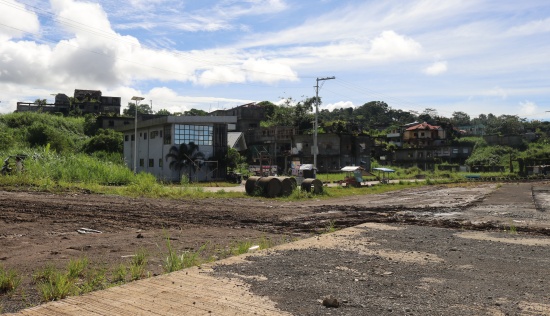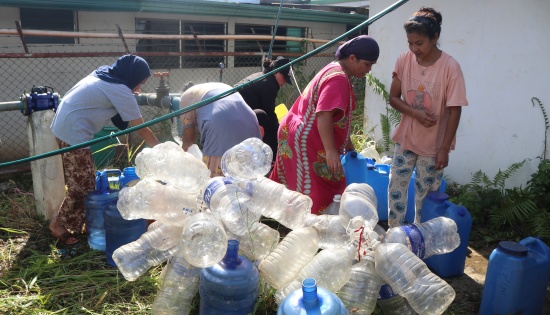Eight years since
Marawi conflict, unresolved issues of displaced and missing people
hamper lasting peace
|

The
most affected area in Marawi remains largely a ghost town
with over 8,000 of its former residents still living in
transitional shelters. (Photo by B. Sultan/ICRC) |
By
ICRC
May 23, 2025
MANILA – The path
to lasting peace remains fragile in Marawi City in southern
Philippines because of unresolved issues like prolonged
displacement, limited support and lack of answers for families whose
loved ones are still missing, eight years since the conflict.
“It is disheartening to
see so many families – around 8,200 people – living for eight years
in inadequate conditions in shelters that were supposed to be
temporary. They are now paying rent and yet have irregular access to
clean water, adding immense strain to their daily lives,” said
Johannes Bruwer, head of the Manila delegation of the International
Committee of the Red Cross (ICRC).
Although the Philippine
government has made significant efforts, such as the construction of
public infrastructure in the most affected area (MAA) and the
creation of the Marawi Compensation Board, rebuilding their homes
remains a distant dream for some families who claim that the
compensation they received is not enough and for those who are
burdened by the documentation required to receive their payouts.
The ICRC continues to urge
the national, regional and local governments – especially its newly
elected officials – to work together to hasten the rebuilding of the
most affected area while ensuring that basic services are provided
to people in transitional shelters.
“Eight years is a long
time; people have been displaced for far too long. For the
residents, returning to their neighbourhoods is a step toward
normalcy and a necessary part of their healing. Ensuring their full
recovery is not only a humanitarian imperative but also key to
lasting peace,” Bruwer said.
The ICRC has been helping
the people of Marawi access clean water, especially in certain parts
of the least affected area where water is now available
round-the-clock. The ICRC is looking forward for government agencies
to complete the remaining pipelines in Marawi’s water supply
network.
|

Eight
years on, displaced families in the Sagonsongan transitional
shelter still face problems with accessing clean running
water. (Photo by B. Sultan/ICRC) |
Over 300 registered cases
of missing people remain open
Since 2017, the ICRC has
advocated for people whose lives were upended by the Marawi
conflict, including the families of the missing. They continue to
suffer from the anguish and uncertainty of not knowing the fate and
whereabouts of their loved ones.
The obligation to prevent
people from going missing and to account for those who are reported
missing is enshrined in the Geneva Conventions and its Additional
Protocols, to which the Philippines is a party.
Apart from the emotional
burden, the difficulty of obtaining a legal document certifying the
absence or presumed death of the missing person has been repeatedly
raised as a major concern by their families. If this persistent,
systemic issue affecting all missing people is resolved by the
government, their families will be able to access social benefits,
pensions and property rights.
From 2017 to 2024, the
ICRC has helped more than 400 families of missing people by
providing mental health and psychosocial support and through
livelihood initiatives. The ICRC has been supporting the Philippine
National Police-Forensic Group with technical advice,
capacity-building and material support toward the identification of
remains in the Maqbara and Dalipuga cemeteries.
“We urge the Philippine
authorities to provide answers as soon as possible to the families
who have been patiently waiting. The authorities need to take the
necessary steps to clarify the fate and whereabouts of the missing,
as well as identify the remains that have been found. By doing so,
the government will help the families move toward healing and
trust-building,” Bruwer said.
He added, “Beyond just
remembering the missing people of Marawi, let us realize their
families’ shared hope for more support and for closure, so that they
can move forward with peace in their hearts.”